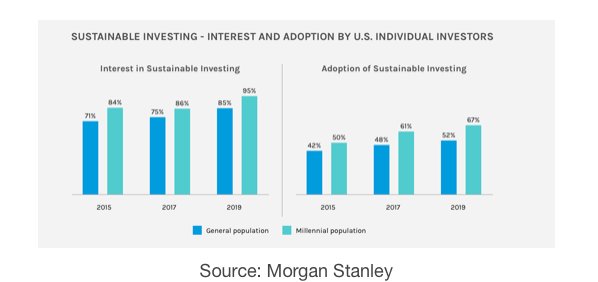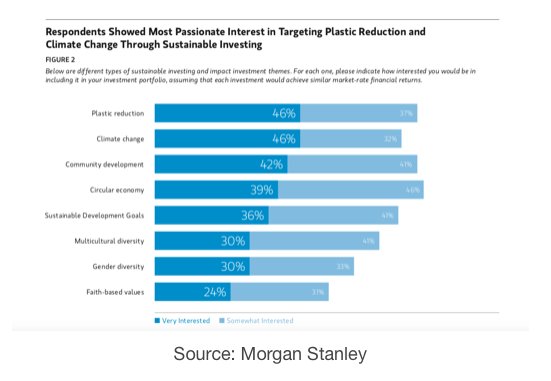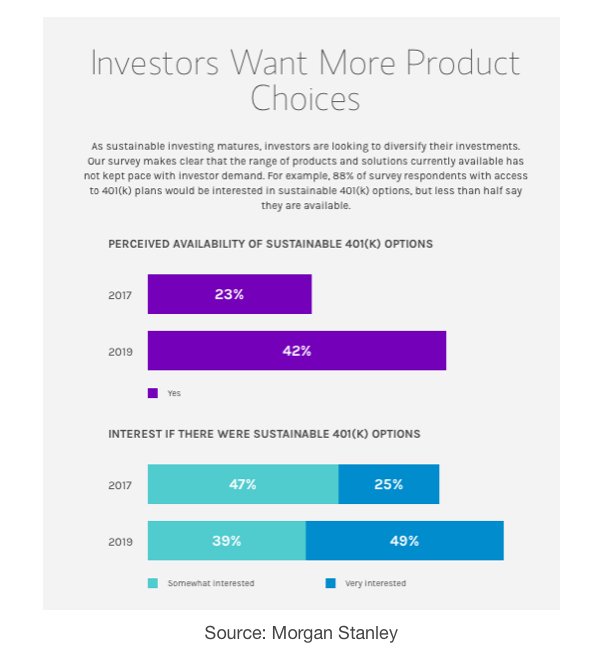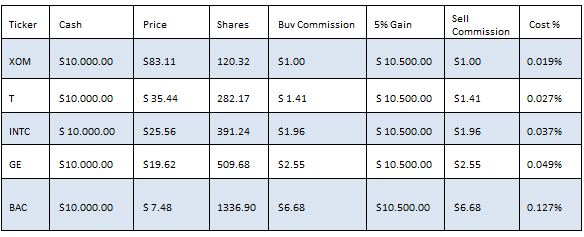Sustainable investing is one of the most powerful trends in global finance. Across asset classes, investors increasingly not only seek returns but also some measure of the environmental and social impact of their investments.
This is no passing investment fad. Socially responsible investing, which weighs environmental, social and governance (ESG) factors in portfolio selection and management, has grown by 34% to $30.7 trillion worldwide over the past two years, according to data compiled by the Global Sustainable Investment Alliance.
Greater investor awareness about environmental problems, climate change and income inequality are propelling big changes in investing priorities and the way financial firms structure their products.

Rising Tide
Investor enthusiasm for ESG products continues to rise. As a recent report from Morgan Stanley highlights, “more than 8 in 10 US individual investors (85%) now express interest in sustainable investing, while half take part in at least one sustainable investing activity.”

The challenge for the financial services industry is coming up with a range of sustainable investing products and solutions to keep up with demand. Companies and asset management firms are also under pressure to offer more ESG options in 401(k) plans.

New Priorities
Investors are particularly interested in reducing plastic consumption and climate change, according to survey data compiled by Morgan Stanley. They’re also keen on sustainable development and greater diversity in the workforce.
The ESG investment wave is most pronounced in Europe, the US and Japan and fund managers there are adopting two broad strategies.
One is negative screening, in which financial professionals identify issues such as pollution, animal cruelty, tobacco and plastics production they don’t want their investors’ money associated with.
ESG Integration
Another, more systematic, approach is called ESG integration. Practitioners analyze corporate reports, filings and other sources to size up a company’s strategic goals and operational issues and their impact on the environment and society.
How is an auto company reacting to the rising consumer interest in electric vehicles? Which luxury and cosmetic companies are sensitive to concerns about animal suffering? Do consumer-facing food companies understand health concerns about processed foods?
Companies are scored for their overall ESG impact as well as the sophistication and potential profitability of their business strategies.
That said, one big challenge for the socially responsible investment movement is creating reporting and disclosure standards among policymakers, stock exchanges and regulators to make it easier for investors to accurately assess corporate performance on key ESG metrics.

Takeaway
Make no mistake: this new breed of more socially-focused investors is still interested in returns. More than 8 in 10 individual investors (86%), surveyed by Morgan Stanley, believe that corporate ESG practices can potentially lead to higher profitability and may be better long-term investments.
The challenge for financial professionals is coming up with the right mix of sustainable investing products that give investors the choices and accessibility to meet their financial goals and investing priorities. It all adds up to a brave new world of investing.
Photo Credit: Kevin Gill via Flickr Creative Commons

